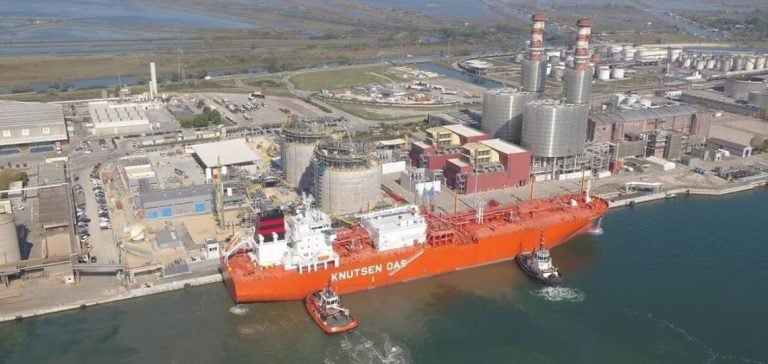France is preparing to face the winter with confidence, thanks to the strength of its gas infrastructures. According to gas transport network managers GRTgaz and Teréga, the current capacity will allow France to meet national demand and support other European countries, even in the case of very low temperatures. This conclusion is detailed in their report “Gas Outlook” for 2024-2025, which highlights optimistic forecasts regarding supply and stock management.
Supply and stock management
The current level of gas stocks in France is one of the key elements ensuring energy security this winter. As of October 23, 2024, gas reserves were filled to 95%, a level similar to that of previous winters, allowing the country to face a cold and prolonged winter. France also benefits from sustained import flows, mainly from Norway, the Netherlands, and Spain, as well as liquefied natural gas (LNG) delivered to methane terminals.
Adaptation to reduced Russian imports
Since the winter of 2021-2022, despite a 70% reduction in Russian gas imports, the European gas system has adapted to maintain their energy security. Twelve new entry points for gas imports have been created in Europe since 2022, with four expected to be operational by the end of 2024. These new points help diversify supply sources, notably with LNG imports from the United States.
European solidarity and energy sobriety
During the winter of 2023-2024, France strengthened its energy solidarity with its European neighbors by ensuring a significant gas transit to Germany, Belgium, and Switzerland. In total, 83 TWh of gas were sent to these countries through the French network. However, GRTgaz and Teréga warn that periods of intense and late cold could put pressure on stocks, especially if they are overused at the beginning of winter.
Call for sobriety and stock preservation
Network managers are calling for continued energy sobriety efforts, as seen in previous winters, to preserve stocks for the entire season. A prudent management of reserves at the beginning of winter is considered crucial to avoid any risk of shortages during a late cold wave.
Despite the challenges posed by geopolitics and climatic conditions, France and Europe are now better equipped to guarantee their energy security, relying on rigorous supply management and cooperation between countries.





















